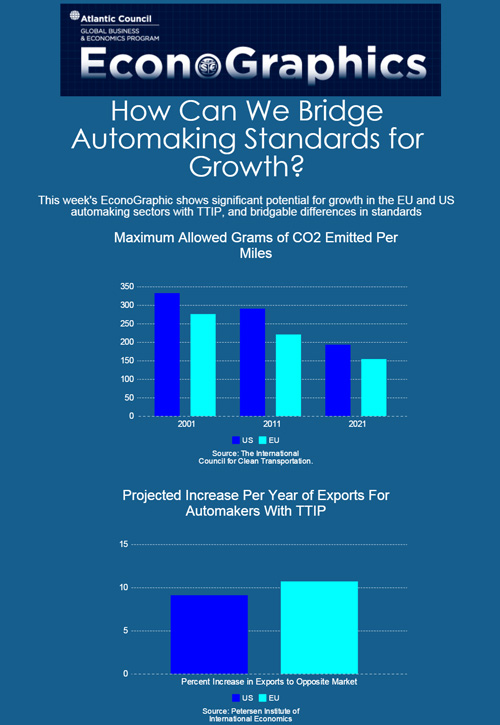The recent Volkswagen scandal has refocused consumers on automaking standards and CO2 emissions. These differences have also been one of the sticking points in TTIP negotiations. Both the American and European automaking sectors have rigorous standards, and as might be expected hold similar regulations. At the same time, both producers and consumers stand to gain immense dividends from a combined market. If tariff and nontariff barriers are reduced in TTIP, The Peterson Institute projects that the two sides could increase their national income by nearly $20 billion per year. With this in mind, negotiators and industries should prioritize ironing out an agreement sooner rather than later.

The amount of allowed CO2 emissions is one of the most significant standards and is an important indicator of total standards. (Volkswagen is currently in hot water for cheating on diesel emissions). Looking at the comparison of this standard between the two markets, we see that both sectors have been consistently raising the bar in an almost parallel manner. Secondly, we look at the significant potentials for growth, and see that both economies and industries stand to benefit massively.
The next round of TTIP negotiations will be held in Miami from October 19th through the 23rd. Representatives should work hard in order to maximize gains for both markets.